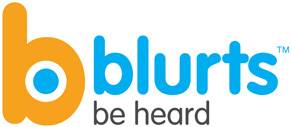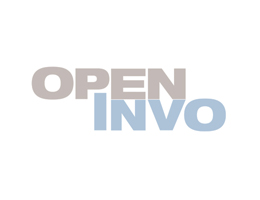On the orders of Spain’s Queen Isabella to bring back riches, Christopher Columbus set out for uncharted waters in 1492. While discovering vast new lands assured his place in posterity, Columbus’s real triumph was uncovering vast beds of oyster pearls off the coast of Venezuela, a rare natural gem that the queen coveted beyond all else. The “pearl rush” that Columbus started way back when is not unlike the rush to entrepreneurship underway today, a surprising outcome in a challenging time.
And more to the point, the beloved pearl provides a lustrous metaphor for the joys and pressures of entrepreneurship, something I’ve discovered personally and as a result of recent interviews with the founders of four start-ups. Though each of the entrepreneurs I interviewed offered pearls of wisdom worthy of an entire article, this provides a deeper dive into the collective mindset of entrepreneurs, especially the type of founder that is prepared to bootstrap their company from inception to market introduction.
It takes an irritant to get started
 While the proverbial “grain of sand” is a myth according to Wikipedia, it does take “an irritating microscopic object [to become] trapped within the mollusk’s mantle folds” for a pearl to get started. For entrepreneurs, the irritant can be as simple as personality type. According to Emily Lutzker, the founder of OpenInvo, an innovative resource for idea generators, “I only had one ‘real job’ once and was told I was disruptive in the workplace,” thus necessitating her entrepreneurial journey.
While the proverbial “grain of sand” is a myth according to Wikipedia, it does take “an irritating microscopic object [to become] trapped within the mollusk’s mantle folds” for a pearl to get started. For entrepreneurs, the irritant can be as simple as personality type. According to Emily Lutzker, the founder of OpenInvo, an innovative resource for idea generators, “I only had one ‘real job’ once and was told I was disruptive in the workplace,” thus necessitating her entrepreneurial journey.
 Sometimes the irritant hits the founder personally. Ashok Kamal, founder of Bennu, explained that, “like any good business, the idea behind Bennu was born out of a problem–the obscene amount of garbage being dumped into landfills.” Jeff Stier, got the idea for the voice tagging utility called Blurts after a voice message from his daughter was annoyingly and irretrievably deleted. And Jesse Middleton, founder of GetMinders, a service that reminds people when to take their medicines, got the idea when thinking about his grandfather who has Parkinson’s and the toll it was taking on him and his family.
Sometimes the irritant hits the founder personally. Ashok Kamal, founder of Bennu, explained that, “like any good business, the idea behind Bennu was born out of a problem–the obscene amount of garbage being dumped into landfills.” Jeff Stier, got the idea for the voice tagging utility called Blurts after a voice message from his daughter was annoyingly and irretrievably deleted. And Jesse Middleton, founder of GetMinders, a service that reminds people when to take their medicines, got the idea when thinking about his grandfather who has Parkinson’s and the toll it was taking on him and his family.
Growth usually requires outside help
It was the rarity of natural pearls that made Columbus’s discovery so important in the 15th Century. Today, more than 99% of the pearls sold are the result of human intervention through a 20th Century process known as cultivation. Not surprisingly, entrepreneurs are almost always dependent on the help of outside resources, both in terms of capital and expertise. What is surprising is how many boot-strappers find those resources close to home from friends and family. Noted a grateful Lutzker, “I didn’t ask for money, [friends and family] volunteered.”
 Outside help also comes in the form of advisers who can add layers of experience. Offered Bennu’s Kamal “You can avoid a lot of unnecessary mistakes by establishing an advisory board from the outset.” “It’s easy to neglect this task in favor of immediate concerns but once we recruited seasoned and candid advisers, Bennu become much more efficient and productive,” added Kamal. In Jesse Middleton’s case the critical advice was more home grown, as his “wife gave [him] a kick in the ass to really get the ball rolling!”
Outside help also comes in the form of advisers who can add layers of experience. Offered Bennu’s Kamal “You can avoid a lot of unnecessary mistakes by establishing an advisory board from the outset.” “It’s easy to neglect this task in favor of immediate concerns but once we recruited seasoned and candid advisers, Bennu become much more efficient and productive,” added Kamal. In Jesse Middleton’s case the critical advice was more home grown, as his “wife gave [him] a kick in the ass to really get the ball rolling!”
Success has its own measurement scale
As long-time leaders in the pearl trade and the first to patent a cultivation process, the Japanese also established the unique weight measurement scale for pearls known as momme. For modern day entrepreneurs, measures of success tend toward the benevolent, hoping that their products and services make the world a better place. Explained Lutzker, “I’m a bit of an idealist and I want to live in a world that fosters and rewards things that make us human and celebrates our differences.” Added Middleton, “getting our product in the hands of millions that need to remember to take their medicines would be pretty amazing for us.”
 Many entrepreneurs share the ability to see beyond the making of their first “pearl,” measuring success in terms of helping others grow their own. Offered Kamal, “I hope the business will outgrow its founders so at that point, personal success would mean being in a position to help aspiring entrepreneurs to achieve their dreams.” Similarly, Middleton noted, “I’d like make it to a point where I can invest in other’s ideas that can make the world a better place.” Added Lutzker, laced with the irony that bedevils boot-strappers, “I’d like to think that success is still a starting point, not only a result.”
Many entrepreneurs share the ability to see beyond the making of their first “pearl,” measuring success in terms of helping others grow their own. Offered Kamal, “I hope the business will outgrow its founders so at that point, personal success would mean being in a position to help aspiring entrepreneurs to achieve their dreams.” Similarly, Middleton noted, “I’d like make it to a point where I can invest in other’s ideas that can make the world a better place.” Added Lutzker, laced with the irony that bedevils boot-strappers, “I’d like to think that success is still a starting point, not only a result.”
You still have to beat the odds
Naturally occurring pearls of a decent size are literally one in million. Columbus and Co had to harvest hundreds upon hundreds of oysters in the West Indies just to find a single pearl worthy of their faire queen. So it is with start-ups, hundreds are conceived while few achieve notable success. Beating these odds takes an indomitable spirit. Explained Stier, “if you’re not passionate and pigheaded about what you believe in even when everyone is a naysayer, you’ll never get it done.”
Kamal took this a step further, suggesting that entrepreneurs needed to be more than thick-shelled, “I’d subject the [would be entrepreneur] to a psychological exam to ensure that they are just crazy enough to start business.” Acknowledging the ups and downs, comes with the territory. Noted a cash-challenged Stier, “the depressing moments have to be outweighed by the moments of joy, like knowing we’ve birthed something from our mind that other people are talking about.” Concluded an undaunted Lutzker, “Yeah, sure I knew it would be hard–when are worthwhile things not hard?”
Final Note: In the interest of full disclosure, I became a bit of a pearl diver myself when I agreed to help Jeff Stier with the launch of Blurts.com. For you angel investors out there, I’ve recorded this Blurts for you Click on the following links for the complete interviews with Lutzker, Kamal, Middleton, and Stier.
